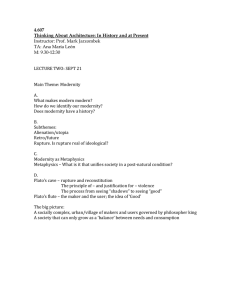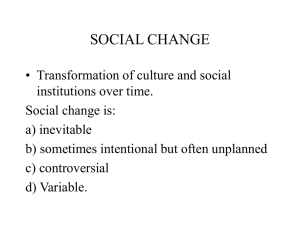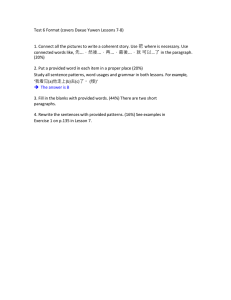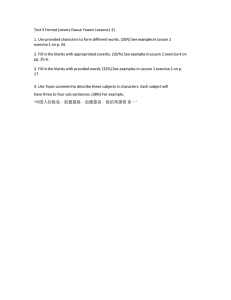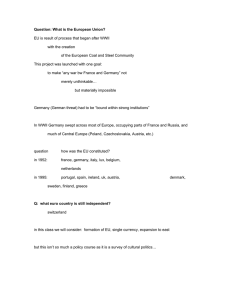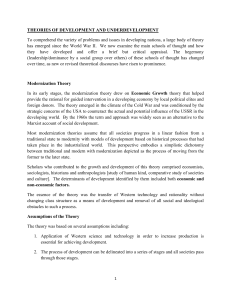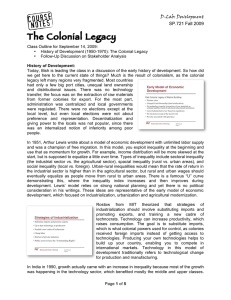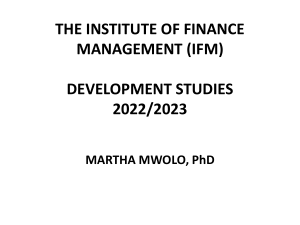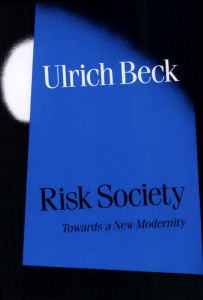Mike Barrett G.031 Response Paper 1/10 21
advertisement
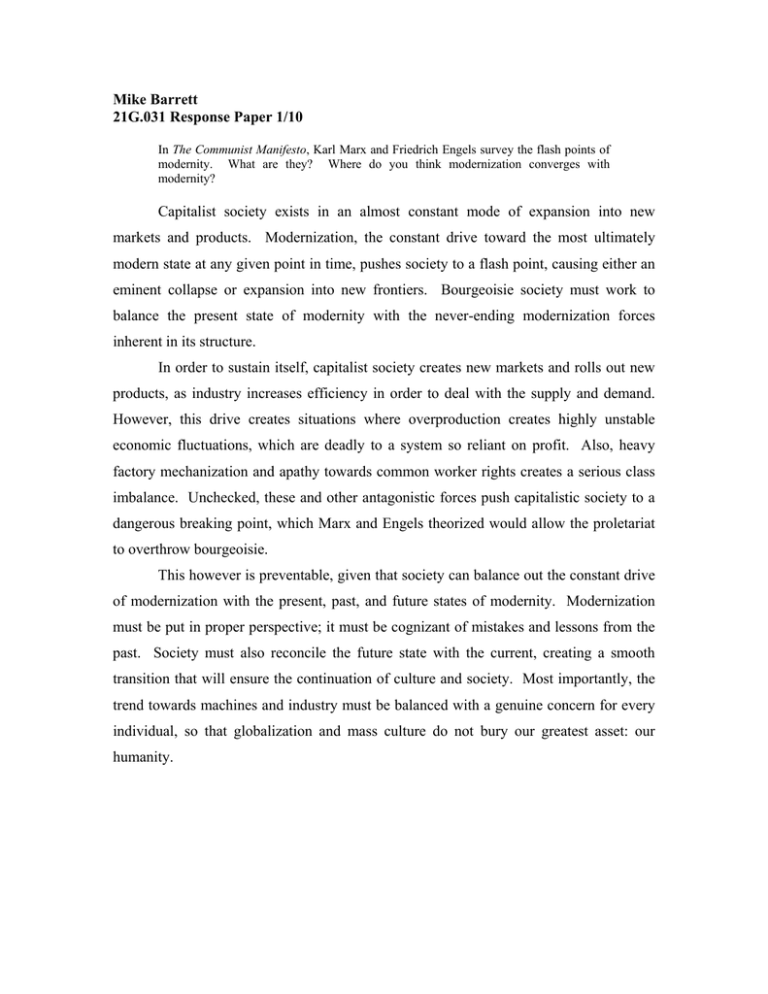
Mike Barrett 21G.031 Response Paper 1/10 In The Communist Manifesto, Karl Marx and Friedrich Engels survey the flash points of modernity. What are they? Where do you think modernization converges with modernity? Capitalist society exists in an almost constant mode of expansion into new markets and products. Modernization, the constant drive toward the most ultimately modern state at any given point in time, pushes society to a flash point, causing either an eminent collapse or expansion into new frontiers. Bourgeoisie society must work to balance the present state of modernity with the never-ending modernization forces inherent in its structure. In order to sustain itself, capitalist society creates new markets and rolls out new products, as industry increases efficiency in order to deal with the supply and demand. However, this drive creates situations where overproduction creates highly unstable economic fluctuations, which are deadly to a system so reliant on profit. Also, heavy factory mechanization and apathy towards common worker rights creates a serious class imbalance. Unchecked, these and other antagonistic forces push capitalistic society to a dangerous breaking point, which Marx and Engels theorized would allow the proletariat to overthrow bourgeoisie. This however is preventable, given that society can balance out the constant drive of modernization with the present, past, and future states of modernity. Modernization must be put in proper perspective; it must be cognizant of mistakes and lessons from the past. Society must also reconcile the future state with the current, creating a smooth transition that will ensure the continuation of culture and society. Most importantly, the trend towards machines and industry must be balanced with a genuine concern for every individual, so that globalization and mass culture do not bury our greatest asset: our humanity. MIT OpenCourseWare http://ocw.mit.edu 21G.031J / 4.608J Topics in the Avant-Garde in Literature and Cinema Spring 2003 For information about citing these materials or our Terms of Use, visit: http://ocw.mit.edu/terms.
